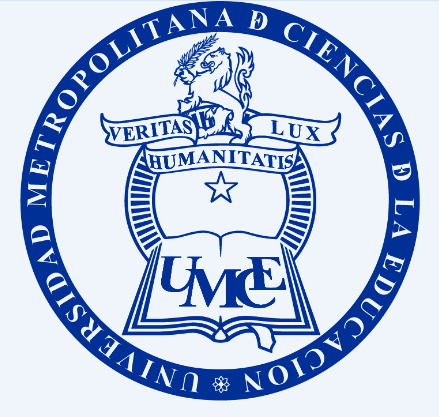Contenu principal de l'article
Publiée :
juin 1, 2023
juin 1, 2023
Mots-clés :
Aprendizaje- Servicio, Integración Curricular de TIC, Proyectos Solidarios, Competencias TIC, Docentes y alumnos, Informática Educativa.
Résumé
N/A
Comment citer
Guajardo Quintanilla, V. E., & Ortega Mierzejewski, R. E. (2023). Tecnologías y aprendizaje servicio en comunidades rurales. Revista Perspectivas Educacionales (REPED), (9), 315–328. Consulté à l’adresse https://revistas.umce.cl/index.php/perspectivas/article/view/2614
Références
Abarca, M. Enfoques y concepciones del currículum. [En línea] [2006, 2 de Diciembre].
Atkinson, R. (1969). Computerized instruction and the learning process. American Psychologist, 23, 225-239.
Berliner, C y Calfee, R. (1996). Cognition and Technology Group at Vanderbilt, Looking at technology in context: a framework for understanding technology and education. Handbook of Educational Phychology, pp.807-841. New York: Simon&Schuster MacMillan.
Bransford J.D, Brown, A.L. Y Cocking, R.R. (2000) How people learn. Brain, mind, experience and school. Washington: J.D.
Delors, J. (1996). Informe a la UNESCO de la Comisión Internacional sobre la educación para el siglo XXI. Madrid.
Marchesi, A., Martin, E„ Casas, E., Ibáñez, A., Monguillot, I., Riviere, V. (2003).Tecnología y aprendizaje. Investigación sobre el impacto del ordenador en el aula. Instituto Idea Madrid, España: SM.
Ortega, E. y Guell, V. (2006). Las Nuevas tecnologías: ¿un salto al futuro? Santiago, Chile: Programa de las Naciones Unidas para el Desarrollo (PNUD).
Rogers, C. y Freiberg, H. J. (1979). Libertad y creatividad en la educación. Barcelona, España: Paidos.
Sánchez, J. Integración Curricular de las TIC: Conceptos e Ideas. [En línea] [2006, 5 de Diciembre ]
Tapia, M. N. (2006). Aprendizaje y Servicio Solidario. Buenos Aires, Argentina: Ciudad Nueva.
Tapia, M. N. (2000). Aprendizaje y servicio solidario: algunos conceptos.
Atkinson, R. (1969). Computerized instruction and the learning process. American Psychologist, 23, 225-239.
Berliner, C y Calfee, R. (1996). Cognition and Technology Group at Vanderbilt, Looking at technology in context: a framework for understanding technology and education. Handbook of Educational Phychology, pp.807-841. New York: Simon&Schuster MacMillan.
Bransford J.D, Brown, A.L. Y Cocking, R.R. (2000) How people learn. Brain, mind, experience and school. Washington: J.D.
Delors, J. (1996). Informe a la UNESCO de la Comisión Internacional sobre la educación para el siglo XXI. Madrid.
Marchesi, A., Martin, E„ Casas, E., Ibáñez, A., Monguillot, I., Riviere, V. (2003).Tecnología y aprendizaje. Investigación sobre el impacto del ordenador en el aula. Instituto Idea Madrid, España: SM.
Ortega, E. y Guell, V. (2006). Las Nuevas tecnologías: ¿un salto al futuro? Santiago, Chile: Programa de las Naciones Unidas para el Desarrollo (PNUD).
Rogers, C. y Freiberg, H. J. (1979). Libertad y creatividad en la educación. Barcelona, España: Paidos.
Sánchez, J. Integración Curricular de las TIC: Conceptos e Ideas. [En línea]
Tapia, M. N. (2006). Aprendizaje y Servicio Solidario. Buenos Aires, Argentina: Ciudad Nueva.
Tapia, M. N. (2000). Aprendizaje y servicio solidario: algunos conceptos.




